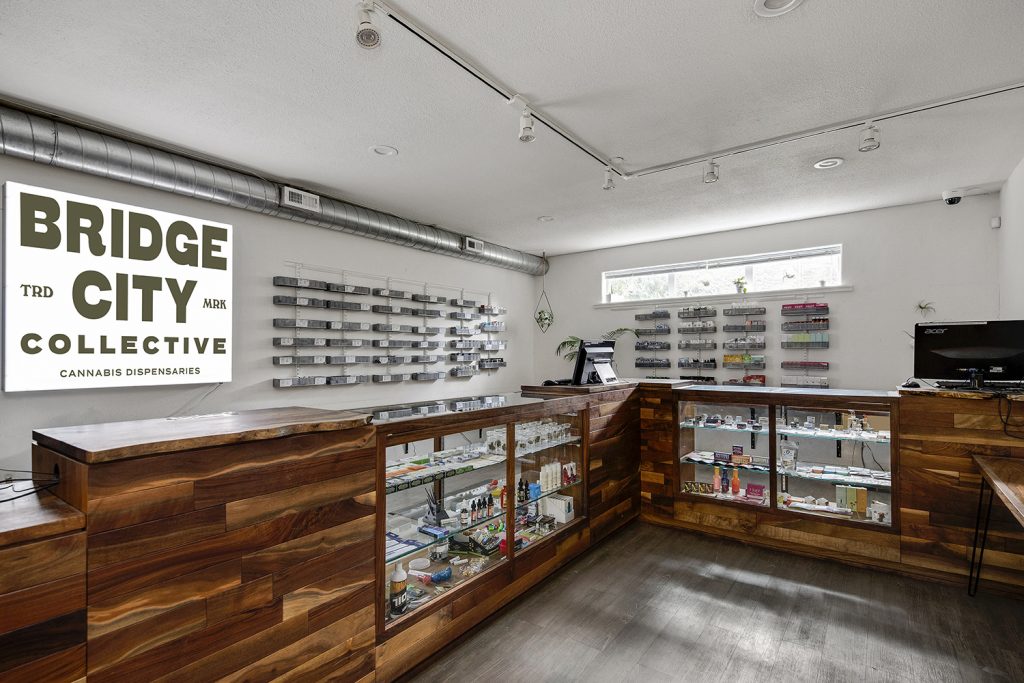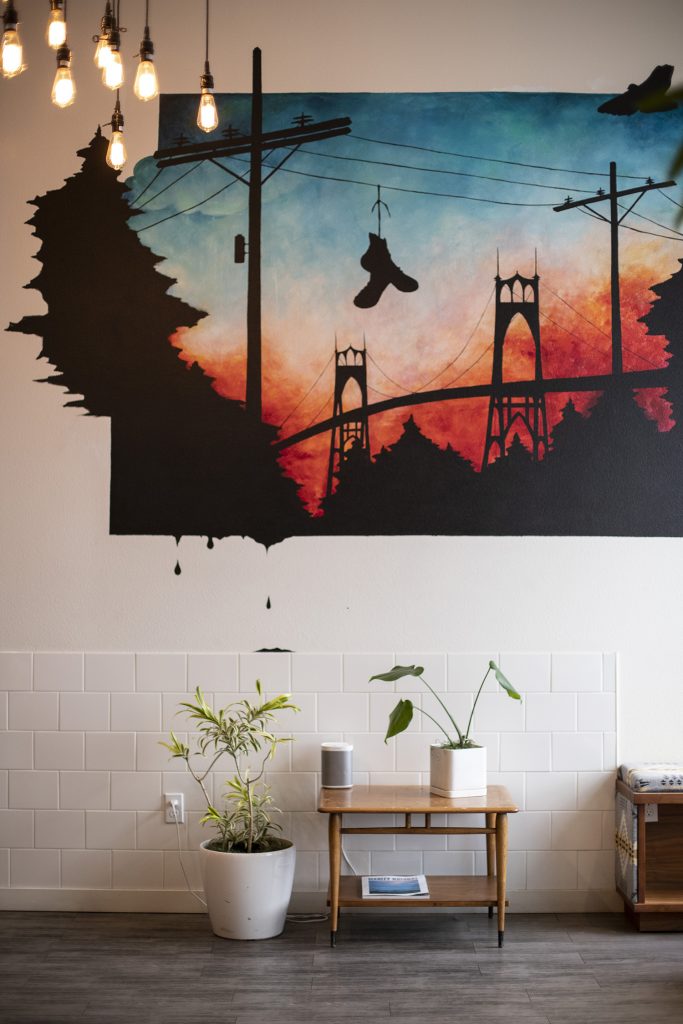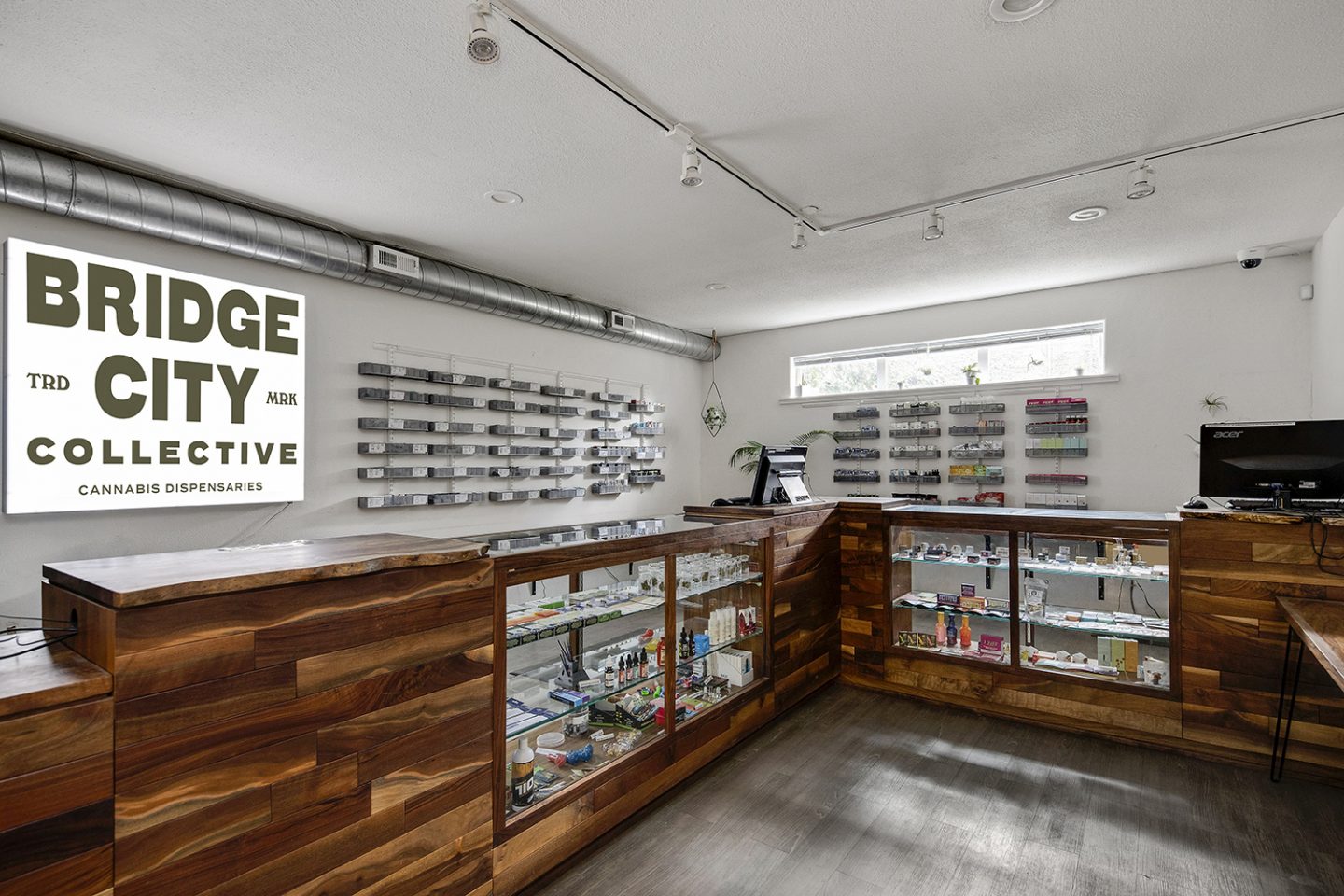
Industry veteran David Alport shares his experience as a multi-store operator and the lessons he’s learned after years of running two successful dispensaries in Portland’s competitive marketplace.
Peter –
First, tell us a little bit about how you got into the industry?
David –
I started out as a professional cultivator, went from a novice grower to a professional grower back in 2009 when I made it my full-time job.
We moved into a warehouse and started cultivating at a larger scale. And then in 2010, founded Bridge City Collective as a direct to patient resource.
So initially, it was going to be kind of a gray market center but we waited until the first licensed framework came online in Oregon, and that happened in 2014.
So that’s when we opened up the first two brick and mortar stores that we have here and those stores are still open today.
Being one of the first stores in Portland is worth pointing out, not everyone can say that. We were one of the original top 10 stores that were licensed right at the outset. There’s only maybe one other one that’s still in the market with the original operators.
Peter –
Portland’s definitely a crowded market. Would you say that is the main reason why you’re one of the only last few standing of the original licenses?
David –
Yes, it’s a saturated market. There’s a lot of competition out here. We’re in the middle of, or middle to end of the second major down cycle we’ve had in Oregon since the regulated market came online.
So yeah, just a lot of turbulence in the market, M&A activity, and people really needing to get focused and lean to be able to weather these storms. That has been really important for us.
Peter –
Yeah, and that’s obviously happening industry-wide now.
David –
Absolutely, yeah. So I started out as a cultivator then started these stores and realized pretty early on that we had some expertise and knowledge that may be beneficial to other states as they bring their cannabis programs online.
And so we started entering other markets by way of partnerships and structuring deals as isolated entities to capture opportunities and bring what we know to the Midwest and the East Coast.
we first did that in Ohio, and then we went to Missouri, Illinois, Massachusetts, Rhode Island, and New Jersey.
So parts of the Bridge City Collective ecosystem have a presence in all of those states. And then we’ll also have some involvement in Florida, pretty soon, hopefully.
Peter –
And is that for your company, is that a for profit initiative or is that just being a good actor in the industry?
David –
Those are for profit initiatives, but we think of ourselves as conscious capitalists, right? Like we feel like it’s really important to be aware of our impact in the communities that we’re engaging in and try to get involved at the community level.
Education is really important to us. There are people on our team that are teaching at community colleges in Illinois and New Jersey and we help facilitate mentorship opportunities for people who just want to learn.
So as we build a business in a new place we think about what kind of community organizations are in our immediate sphere wherever we’re operating.
We think about how we can engage with them and give back as a company These are things that we’re constantly thinking about as we carve out our path.
But in the end, yeah, they are for-profit endeavors.

Peter –
It’s now been many years since you’ve been operating two dispenseries. What do you wish you had known kind of before you started the first one?
David –
Understanding the impact of 280E is critical. And at the outset, we were spending a lot more on marketing than we needed to.
So over the years, that’s something that we’ve really gotten good at.. understanding what works for us and what doesn’t. we tried many different things, but on a really small scale and to see what works and then ramping up where it’s effective.
If we had known earlier how much of an impact 280E would have on the bottom line, we wouldn’t have spent as much on marketing right away.
Peter –
That’s a common theme I hear from people, the impact of 280E is often underestimated when getting started.
David –
Also, I think it’s really important to note that when you’re thinking about spending your marketing dollars or devising your marketing strategy to not get too wrapped up in what your competitors are doing.
And that’s true from an operational standpoint in general. It’s really important to understand the landscape and the nature of the industry and what people are doing, but it’s also important to not let that overly impact how you’re making your strategic decisions to operate the company and spend your marketing dollars.
You really need to figure out what works for you, what works for your business and what works for your business’s mission and lean into that.
Peter –
Over the last couple of years, how have you adapted the dispensary based on feedback you got from customers?
David –
Sure, I think, product and pricing are really important. Offering products that suit the needs of the neighborhood that the store is in.
These two stores in Portland are in drastically different neighborhoods, and the people that are frequenting our stores have different needs.
So being aware of that and offering what they need is something that took us a little bit of time to figure out.
Peter –
Do you have a practical example of an adjustment that you made based on customer feedback?
David –
Sure, at one of our stores, people have a pension for more top shelf flour. At the store, people have more of a pension for affordable flour.
It’s a challenge for us because we are so focused on quality, the challenge is finding the right flower to offer at a cheaper price.
But we’ve been able to do that, typically just through smaller buds. So we’ll buy what’s called B buds from top shelf producers so that we can offer top quality flower at a cheaper price to our customers.
Peter –
How have you dealt with the challenges of payments over the years?
David –
we’ve gone through everything from just cash to at one point to taking Square, to now having ATMs and a compliant merchant processor that’ll do debit cards.
We’re leaning into that debit card transaction more and more. That drives up the average basket price. And it takes cash out of the store, right? The more cash we have in the store, the more of a security risk there is.
So trying to encourage people to use the debit card machine is important to us.
Peter –
And have you tested out or do you use kind of any loyalty programs, frequent shopper programs, and kind of how have you found those to work or be valuable, I guess at all?
David –
Yeah, we’ve had several programs over the years. When we were first starting out, we had a program that was 5% on cash, point accumulation that our customers could use to purchase products that are not infused.
So shirts, lighters, paraphernalia, books, .. we have like a huge book selection. That’s pretty unique about us.. And at some point we tried out something called SpringBig.
And that’s mainly a text messaging platform, but we also used it as a loyalty program. And in Oregon, that actually allowed us to offer points for products that actually have THC.
And it’s been tough to really maximize those programs for us and get the most out of them.
So we’ve been backing off of that. It’s just in Oregon, the market is so saturated and there’s so much convenience that its tough to use those tools to build loyalty.
You build more loyalty, I think, just by having good relationships with your customers. and treating them really well and just, you know, building a welcoming atmosphere for them.

Peter –
What are some kind of creating market of efforts that you’ve tried that have been, you know, pretty successful in driving some new business in?
David –
Event-based marketing works really well. Having a party at your store and getting people out, getting them into your store and letting them know, hey, we’re here, we’re in the community, that really helps.
Peter –
And how do you let people know you’re having a party?
David –
So over the years we’ve… We amassed an email list, which is probably one of our biggest strengths, of around 12,000 people here in the Portland market.
And when we send out emails, we get a really strong response rate from those. So that’s not just for events, but also if we have promotions or are trying to raise awareness about something.
So that’s our biggest tool that we use.
Peter –
Your budtenders are the people on the front lines. How challenging is it to keep kind of like your best people on staff or to find new people?
David –
It is very challenging. especially in this market. People are always looking for job opportunities, and so you have to work really hard to make sure that they feel comfortable and at home.
We pay above average wages. We treat our staff really well. And for the longest time, that’s all we really needed to do.
I mean, we have one of the highest retention rates in Portland but now we need to think about the other attributes that make a good employee and plan for that.
Nowadays, we might hire someone who doesn’t have the industry experience but has everything else that we need and then we will train them on the products and what we’re offering our customers.
And I think for any operator, it’s really important to just make sure that you have open channels of communication with your team and your staff.
And that if they have something that they need to say, that they can say it, and that they know they’re going to be heard.
Peter –
Do you have any hopes or thoughts on what you’re thinking might happen this year, in regard to the industry conditions and any potential reform?
David –
I’m hoping that by the end of 2023, we get to the end of this down cycle. In the industry, I think that we’ll start to see the market kind of loosen up a little bit.
People will have a better understanding of what’s happening with the economy, the impact of the war in Ukraine and kind of where we stand there.
And so I think there’s going to be less fear around job security which will create more spending. So for that reason, I’m optimistic.
I think by the end of this year, we’ll start to kind of level off and get back to normal.
I think we’ve gotten through the worst of it.
Peter –
What advice would you give a brand-new dispensary owner?
David –
You don’t know what you don’t know, right? So, try to talk to people who have been through it before and listen to what they have to say.

